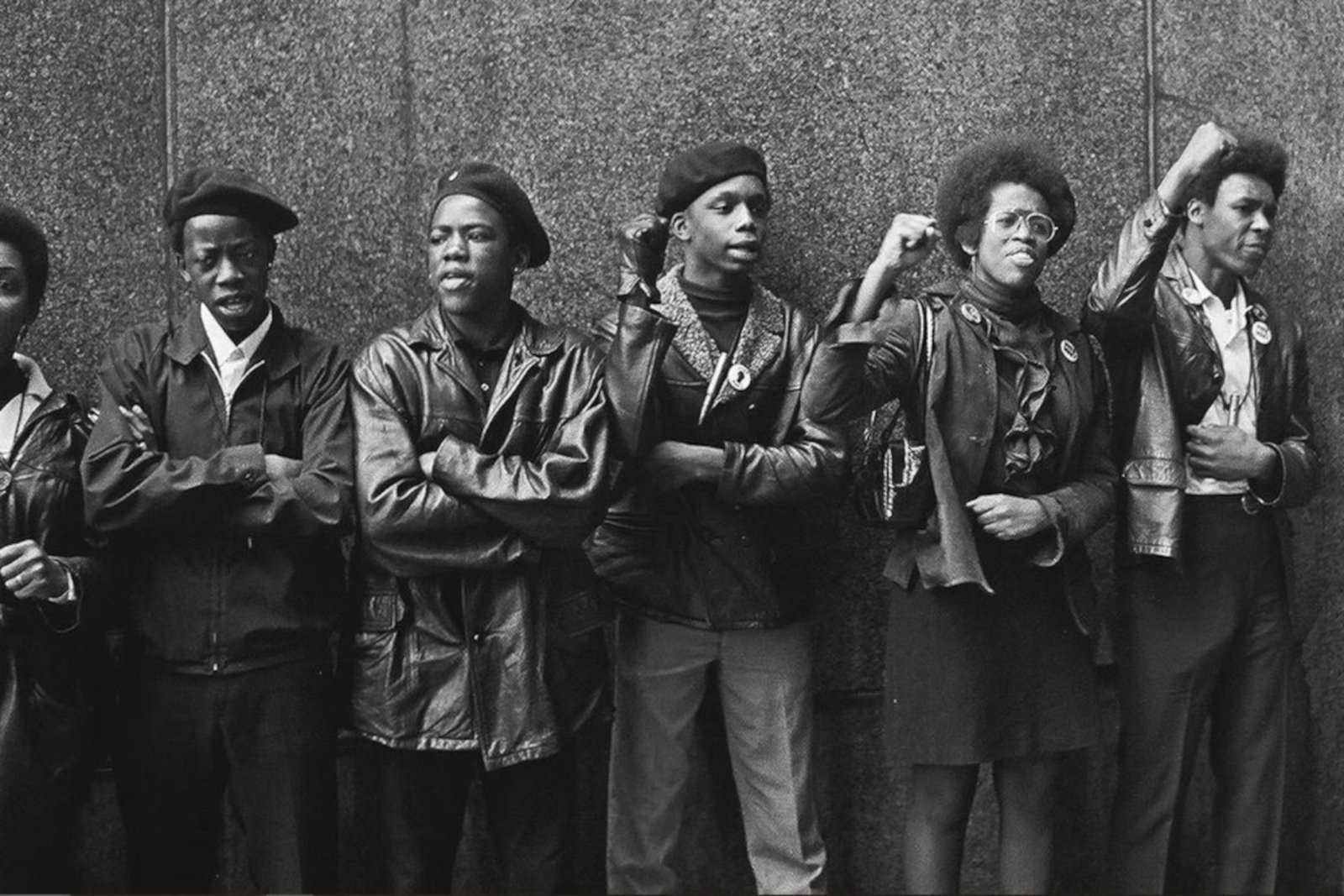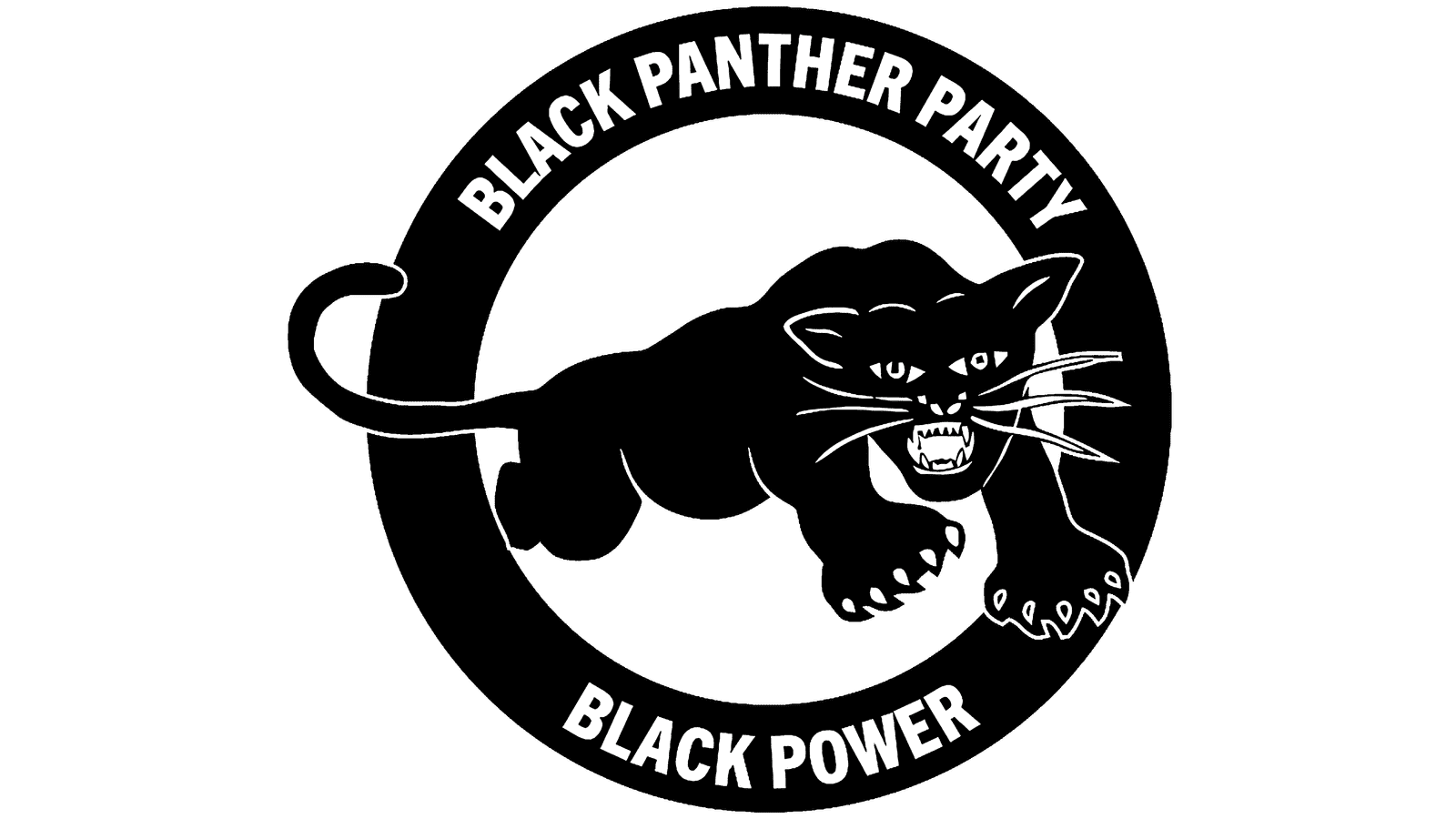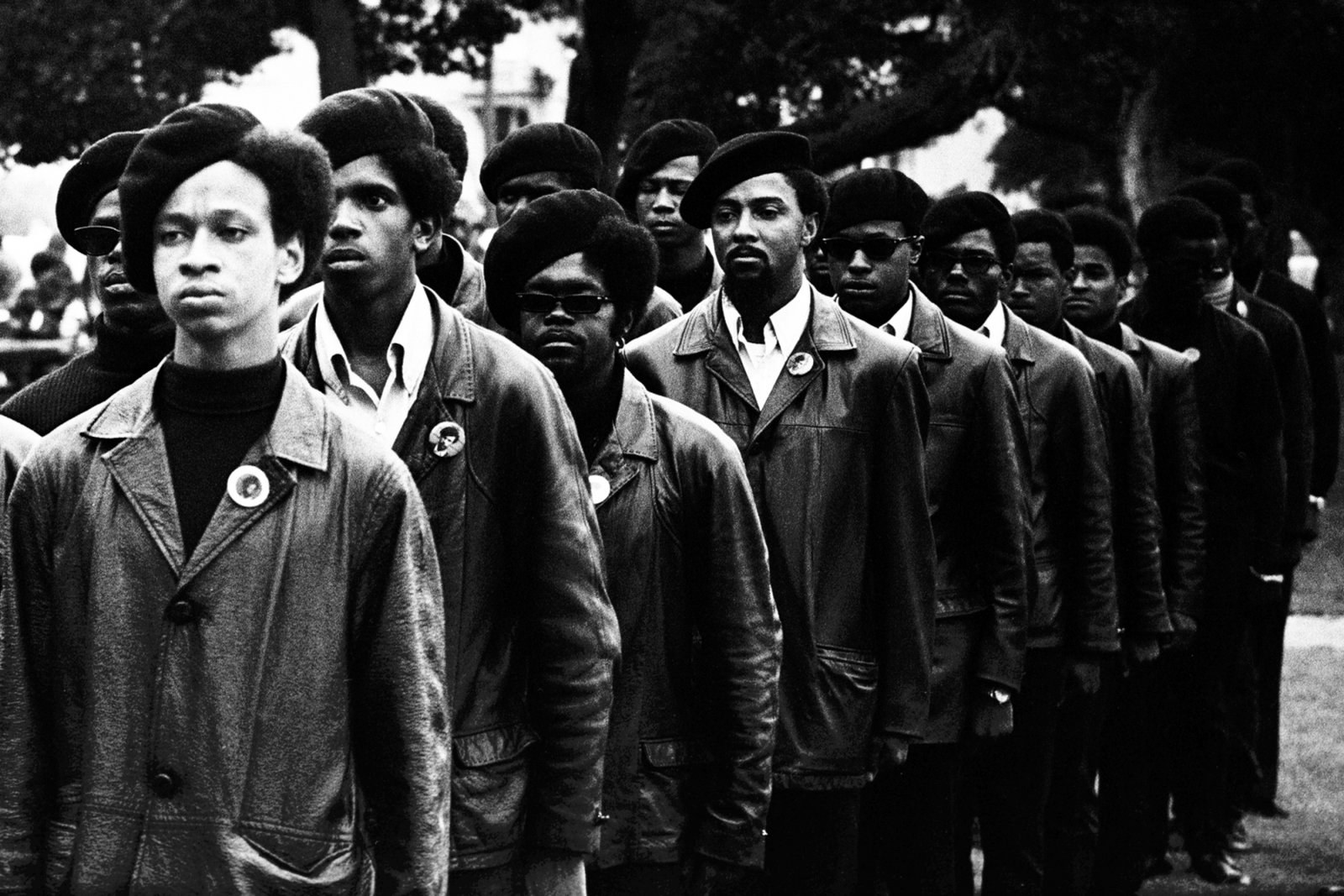The Black Panther Party’s inception was deeply rooted in the racial tensions of Oakland, a city with a long history of police brutality against African Americans. Newton and Seale, both college students at the time, were influenced by the teachings of Malcolm X, who had called for Black self-determination and defense “by any means necessary.” Newton and Seale adopted this philosophy and sought to address the immediate needs of Black communities by organizing around the issue of police violence. The Panthers began by forming armed patrols to monitor and record the behavior of police officers in Oakland, with the intention of preventing police misconduct. These patrols were not only a form of community protection but also a powerful symbol of resistance, challenging the pervasive image of Black people as passive victims of oppression.
The Party's platform, known as the Ten-Point Program, articulated the Panthers’ broader political vision. The Program demanded, among other things, full employment, decent housing, education that emphasized Black history and culture, an end to police brutality, and reparations for centuries of exploitation. While the Party’s initial focus was on self-defense, it quickly expanded its mission to address the socio-economic inequalities facing Black Americans. Newton and Seale saw the need for a revolution that would not only bring an end to racial oppression but also overhaul the capitalist system that they believed was responsible for poverty and exploitation. Their commitment to socialist ideals, including the redistribution of wealth and the nationalization of industries, marked the Panthers as part of a global movement for liberation, aligning them with anti-colonial struggles in Africa, Asia, and Latin America.
One of the most significant contributions of the Black Panther Party was its focus on community service. Recognizing that systemic change would take time, the Panthers established a range of social programs to address the immediate needs of African Americans. Among the most well-known was the Free Breakfast for Children Program, which provided free meals to thousands of schoolchildren across the country. The Party also set up health clinics, educational programs, and legal aid services, all aimed at empowering Black communities to become self-sufficient. These programs were designed not only to meet basic needs but also to raise political consciousness, helping participants understand the structural roots of their oppression. The Panthers’ community service efforts were groundbreaking and provided a model for later social justice organizations, though they often went unrecognized by a mainstream media more focused on the Party's militant image.
Despite their efforts to uplift Black communities, the Black Panther Party quickly attracted the attention of law enforcement, particularly the FBI. The Party’s willingness to bear arms and its revolutionary rhetoric made it a target for the FBI’s Counter Intelligence Program (COINTELPRO), a covert operation aimed at surveilling, infiltrating, and dismantling civil rights and Black liberation organizations. Under the leadership of J. Edgar Hoover, the FBI worked to discredit and disrupt the Panthers through a range of illegal tactics, including spreading disinformation, planting false evidence, and encouraging violent confrontations between Party members and other groups. One of the most infamous instances of COINTELPRO’s campaign against the Panthers was the 1969 assassination of Fred Hampton, the charismatic chairman of the Illinois chapter, during a raid by Chicago police. COINTELPRO’s repression was a major factor in the eventual decline of the Black Panther Party, as it created internal divisions and led to the imprisonment or death of many of the Party’s leaders.
By the early 1970s, the Black Panther Party was facing increasing internal strife. Factionalism and ideological disagreements, exacerbated by FBI infiltration, began to fracture the organization. Some members advocated for a continued focus on armed struggle, while others, like Huey Newton, began to emphasize community programs and electoral politics as a means of achieving change. These differences came to a head in 1971 when a split occurred between Newton and Eldridge Cleaver, who had been the Party’s Minister of Information and an outspoken advocate for a more militant approach. Cleaver, who had fled to Algeria to escape criminal charges, accused Newton of abandoning the revolutionary cause in favor of reformist policies. The rift between the two men marked the beginning of the end for the Party as a cohesive national organization.
Despite these challenges, the Black Panther Party continued to operate throughout the 1970s, though its influence waned. Chapters in cities like Oakland, Chicago, and Los Angeles persisted, but the FBI’s efforts, coupled with internal dissent and financial difficulties, made it increasingly difficult for the Party to sustain its revolutionary momentum. By the early 1980s, the national organization had effectively dissolved, though some local chapters remained active in their communities.
The legacy of the Black Panther Party is complex. On one hand, the Party’s emphasis on self-defense and revolutionary change made it a symbol of Black resistance to oppression, inspiring future generations of activists. Its community programs, particularly the Free Breakfast for Children Program, demonstrated the power of grassroots organizing and challenged the notion that Black Americans needed to rely on the state for their basic needs. On the other hand, the Party’s confrontational tactics and internal conflicts, combined with the relentless assault from COINTELPRO, contributed to its decline. The media’s focus on the Party’s militancy often overshadowed its community service work, leading to a perception of the Panthers as a violent organization rather than a revolutionary one dedicated to social justice.
In retrospect, the Black Panther Party’s history reflects both the possibilities and limitations of radical activism in the United States. The Party’s bold vision for Black liberation, rooted in both socialist ideals and Black nationalism, made it a powerful force in the struggle for racial justice. Yet, the challenges it faced—from state repression to internal divisions—highlight the difficulties of sustaining a revolutionary movement in the face of overwhelming opposition. Nevertheless, the Black Panther Party remains an enduring symbol of resistance, and its influence continues to be felt in contemporary movements for Black lives and social justice.


